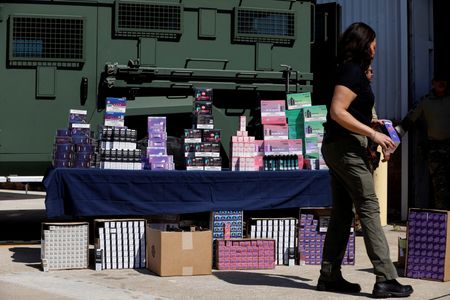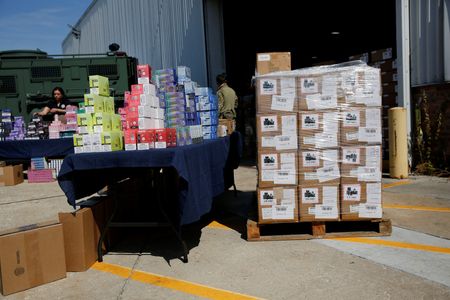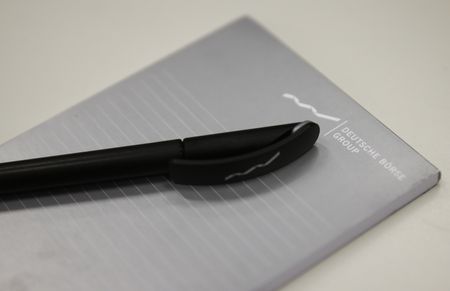By Emma Rumney
LONDON -British American Tobacco said it has paused a pilot plan to launch an unlicensed disposable vape in the U.S., as the Food and Drug Administration moves to crack down on unregulated products and speed up licences.
BAT’s previously unreported reversal reveals the complex battle big tobacco faces to compete with a wave of unregulated products, largely from China, that have dented profits in the $22 billion U.S. market for smoking alternatives.
The company also makes Lucky Strike and Dunhill cigarettes.
Marlboro-maker Philip Morris International said in September it was open to making a similar move with versions of its Zyn nicotine pouch label.
BAT’s Reynolds American will pause the pilot launch for Vuse One, which it acquired in April, for now, a spokesperson told Reuters, after the U.S. subsidiary had laid out plans for the launch without FDA authorisation earlier this year.
While only a pilot, the plan marked an assertive shift in big tobacco’s approach to FDA rules the industry says stymie its ability to compete and triggered broad interest among investors, rivals and regulators.
“The planned pilot launch of Vuse One in selected states has been postponed,” the Reynolds spokesperson said, adding it would focus on its existing portfolio, including a nicotine pouch already on sale without FDA approval.
PMI ‘PLAN A’: STICKING TO THE RULES
Tobacco firms have been lobbying the U.S. government and the FDA for years to wipe out a booming market for unlicensed vapes, often in fruity or sweet flavours and imported from China.
They have also been pushing for reform to the FDA’s system for granting the licences required to sell new nicotine products, which has in some cases left companies waiting years to get permission and, more often, ends in rejection.
The FDA has recently stepped up raids on unauthorised vapes and targeted firms in the supply chain. It also launched a pilot aimed at testing a streamlined application process.
PMI CEO Jacek Olczak told Reuters last week that its “plan A” is to stick within the rules since the FDA signalled it would speed up applications. He was hopeful PMI would not need to resort to launching a product without authorisation.
“Clearly my preferred scenario is to stay within the framework dictated by FDA,” he said after PMI’s results.
Altria, which makes and sells the Marlboro brand in the United States, however, still plans to go ahead with its test launch of an updated version of its nicotine pouch brand On! in the autumn, and the product is already available online, a spokesperson said, despite lacking an FDA licence.
SELLING PRODUCTS WITHOUT LICENCE UNLAWFUL
The FDA told Reuters it was aware of reports that a small number of manufacturers have had plans to introduce new tobacco products to the U.S. without authorisation.
“The Agency takes such matters seriously,” it said, adding it had made public contact with particular manufacturers and retailers and would continue to monitor their actions.
In a previously unreported letter, the FDA wrote to Reynolds on September 17 to say selling new nicotine products without authorisation was unlawful and asked it to provide information on any sales of Vuse One that had already occurred.
Reynolds told Reuters the decision to postpone its pilot was unrelated to the warning and taken before the letter.
“We will bring Vuse One to market at the appropriate time,” the spokesperson said.
While welcomed by the industry, FDA plans to streamline applications have triggered concerns, with six campaign groups including the Campaign for Tobacco-Free Kids and the American Lung Association writing to the FDA in October to say details of the pilot programme reported by Reuters were worrying.
The pilot “would appear to be a sharp departure from the agency’s previous, rigorous… evaluation” process, they said.
Bret Koplow, acting director of the FDA’s Center for Tobacco Products, said the FDA’s evaluations would remain rigorous and consistent with U.S. law under the pilot.
In a statement in response to the campaigners’ letter, he said the programme was an exciting opportunity to explore more efficient processes.
(Reporting by Emma Rumney; Editing by Adam Jourdan and Alexander Smith)












